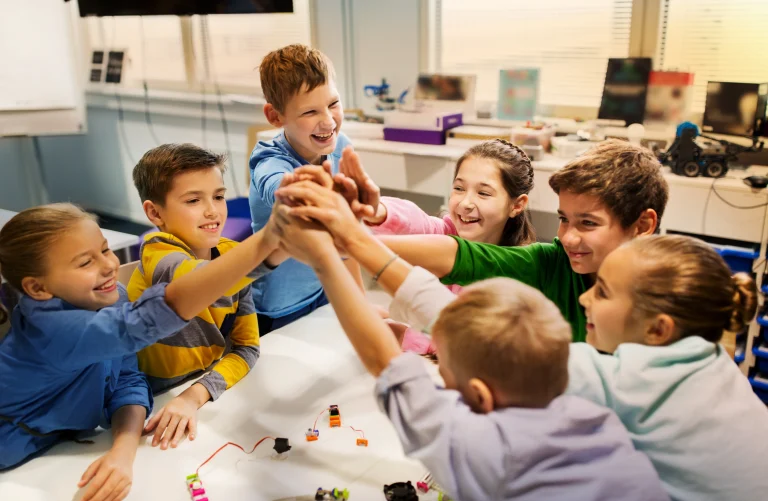
get started
It is important to help children develop social skills because they change quickly. This comprehensive guide discusses useful methods, tasks, and ideas to give parents and other caregivers the tools they need to help their children develop these important skills.
Understand how social skills develop
Why social skills are important
Learn how to unlock the potential for lifelong success by understanding the profound impact of children with good social skills. From making friends to dealing with life’s problems, these skills are essential for a happy and successful future.
LSI keywords:
Children grow up socially
Why interpersonal skills are important
how children talk to each other
Create a supportive environment
Family dynamics are important
Explore how family relationships can have a significant impact on a child’s social growth. Learn how to create a safe space that promotes good relationships and emotional intelligence.
Promote interaction between peers
Find out how to make it easier to interact with people. From playdates to group activities, come up with creative ways for kids to communicate, collaborate, and learn how to work as a team.
things to improve social skills
Through playing, children learn how to interact with others.
Discover how play can help you develop social skills. Look for things that make learning fun while also teaching important social skills. This can be anything from pretend play to planned games.
Ideas kids can use to build teams
Check out team building activities designed especially for kids. These tasks not only help people work together, but also teach values like empathy and leadership, which overall benefits society.
Real-world examples of how to help children learn social skills
Personal success story
Real-life stories from parents and teachers who successfully raised children with good social skills will help your own story. Find out what you can learn from their problems, successes, and important lessons.
FAQ (Helping children learn to interact with others)
How do I know if my child needs help making friends?
It’s important to know the signs that your child is having trouble socializing with friends. Look for signs such as difficulty making friends, not wanting to do things with others, or difficulty expressing your feelings.
Is there something for shy children?
Certainly! Adapt the tasks to your child’s playing style. Think of play dates, book clubs or art classes where they can be themselves and express themselves more freely.
Are social skills innate or can they be learned?
Some children naturally get along well with others, but everyone can improve their social skills with help and practice. Continued exposure to good social situations is important.
How much time should my child spend in front of a screen per day?
Screen time should be balanced. Make sure your kids do lots of different things online and offline so they have a well-rounded social life.
How can schools help children interact with others?
Schools are of great importance for social development. As such, they provide a structured place for children to play, collaborate and learn important social skills.
What can I do to stop bullying and improve my child’s social life?
An open dialogue is very important. Help your child talk about their feelings and work with the school to make it a place where bullying doesn’t happen. In severe cases, it may be important to seek professional help.
In summary
In short, teaching children how to interact with others is a long process that requires dedication, imagination and a deep understanding of each child’s personality. By using the tips and tricks in this guide, you can help your child handle social situations with confidence and style in the future.